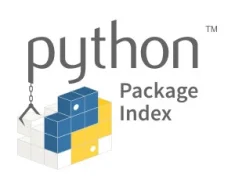In the fight against COVID-19, a team of researchers at the University of Queensland is leveraging the power of machine learning. Their goal is to identify and manage bacterial co-infections, a common complication in severe COVID-19 cases. By predicting and managing these infections, healthcare professionals can craft more effective treatment strategies, leading to improved patient outcomes. This innovative approach is being hailed as a promising tool in the battle against the pandemic.
Using Machine Learning to Predict Risk
The scientific community has long recognized the potential of machine learning in medicine. In this case, the Queensland researchers used machine learning to predict the risk of secondary bacterial infections in hospitalized COVID-19 patients. They developed a predictive model using the ‘least absolute shrinkage and selection operator’ (LASSO) technique, an approach that promises to change the game for antibiotic prescription.
Blood samples from COVID-19 patients in six countries were analyzed. The team found that the expression of seven genes in a COVID-19 patient can predict their risk of developing a secondary respiratory bacterial infection after 24 hours of hospital admission. This groundbreaking research, published in Lancet Microbe, suggests that gene transcription and analysis at the time of clinical presentation at a hospital, together with machine learning, can significantly influence treatment strategies.
The Role of Antibiotics
While antibiotics are a common form of treatment for bacterial infections, their overuse can lead to antibiotic resistance and the creation of bacterial superbugs. This risk highlights the importance of careful antibiotic use. By using machine learning to predict the risk of bacterial co-infections, clinicians can make more informed decisions about whether antibiotic use is critical for a patient. This approach can prevent unnecessary antibiotic use, reducing the risk of resistance and superbug creation.
Bridging the Gap Between Data Scientists and Other Scientists
The research also underscores the importance of using less complex machine learning methods. The LASSO technique, for instance, is both effective and relatively easy to understand. By using such methods, the researchers hope to bridge the gap between data scientists and scientists in other fields, fostering greater collaboration and understanding. This interdisciplinary approach is essential in the fight against complex diseases like COVID-19.
Thanks to extensive international collaboration, this research offers valuable insights into the role of machine learning in healthcare. As we learn more about COVID-19 and its complications, such innovative approaches will continue to play a critical role in improving patient outcomes. The Queensland team’s research is a reminder of the transformative potential of machine learning in medicine, paving the way for more effective, personalized treatments for patients around the world.


